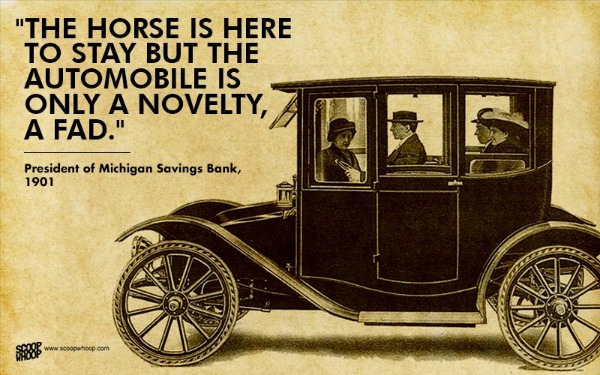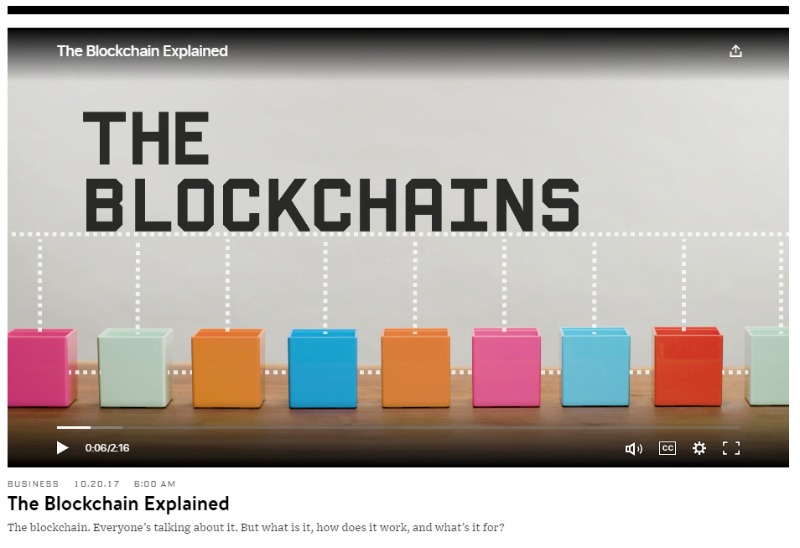 The University of Auckland Associate Professor and Head of the Department of Commercial Law Alex Sims was a busy woman in 2017 spreading the message about blockchain as far and wide as she could. In 2018, she is going to be even busier.
The University of Auckland Associate Professor and Head of the Department of Commercial Law Alex Sims was a busy woman in 2017 spreading the message about blockchain as far and wide as she could. In 2018, she is going to be even busier.
Blockchain, she says, is poised to tip everything we thought we knew about information storage, transfer, and transactions upside down. And unbeknownst to many people, that transformation has already started. Right now blockchain technology is either being used, or being investigated for use in banking, government, law, trade, logistics, aid, and healthcare.
Very soon, says Alex, it will begin to replace traditional transactional systems, and yet public perception of it is vague and confused. We’ve heard about blockchain but mostly only in conjunction with the tumultuous see-sawing performance of the cryptocurrency Bitcoin.
Look beyond Bitcoin
The common misperception is that Bitcoin and blockchain are interchangeable terms for the same thing, or even that there is just one blockchain, says Alex. However that’s not so. Bitcoin is just one of the many hundreds of cryptocurrencies that uses blockchain technology.
Perhaps at least some of the confusion springs from Bitcoin’s claim to fame. It was the first ever cryptocurrency, and its invention created the first ever blockchain.
Cryptocurrency uses go beyond traditional buying and selling
While some cryptocurrencies, such as Bitcoin and Ether, can be used to buy goods and services from a growing range of merchants, others are tokens that are used on a specific blockchain platform, like for instance Sia, which provides decentralised cloud storage.
Instead of paying Google to store your files on its cloud platform you can use Siacoin, a token cryptocurrency which as its names indicates is used exclusively on Sia to receive or give payment for file storage.
Sia‘s decentralised file storage delivers its users 4 major benefits.
- Monthly storage costs are up to 12 times cheaper than the current “big” name providers – Google Cloud, Amazon S3 and Microsoft Azure
- Monthly download bandwidth costs are up to 10900% less. (See Calculate your saving table on this page.)
- Privacy
- It removes the dependency on one company to remain in business. Risk is lessened.
attention grabbing headlines on making money with any cryptocurrencies, including Bitcoin, is a dangerous diversion.
Alex regards the recent rush of attention grabbing headlines on making money with any cryptocurrencies, including Bitcoin, as a dangerous diversion. It’s a side show, she says, one robbing attention from where it should be, and that is on coming to grips with blockchain which is so much more than a vehicle for financial gain.
What is blockchain?
Essentially blockchain is what its name indicates – interlocking blocks or chains of information. What makes these blocks radically different from any other blocks of data is the way they are created, stored, accessed, added to, and transferred.
At present commonly accepted models of data handling are centralised. Blocks of data are housed in special repositories which until recently were physical. For example, a bank was literally a building holding notes and coins in its vaults and the records of its customers, their individual and company accounts, were in books. While the need for an actual building in an actual location has lessened, and paper recording has been largely digitised, that centralised system of data handling has continued and is mirrored in the technologies we currently use.
Blockchain changes that completely by decentralising and disseminating data through its peer to peer user networks.
Is it secure? Yes, more so than ever before. Is your private information really private? Yes, depending on your choice of blockchain. You are always in control of how much or how little you share, and who has access to your data.
For an excellent over view of what it is, and how it works, watch the video The Blockchain Explained.
The impact of blockchain
It will force a rethink of intermediary or “middle men” roles, the bundling of services, decentralisation of governance, adding and distributing value, and it will provide the impetus to forge new legal and regulatory frameworks.
Blockchain will do two essential things simultaneously. The first is that it will make existing processes and services more efficient while secondly, seriously disrupting how services are provided, and by whom.
For example
A container load of Manuka honey is being exported to Europe. The container could be fitted with an IoT (Internet of Things) device and a smart contract set up so that once the container reached its destination port the agreed payment would be made instantly.
Even better the smart contract can be programmed so that instead of the supplier receiving all of the money and paying other people out at a later date, the payment is split between the supplier, the bee keepers, the trucking firms, the shipping line, the IRD and other interested parties.
Moreover, at a governmental level the Ministry for Primary Industries could be granted permission to see into relevant blockchains allowing it to monitor exports and imports in real time.
That is just one use case.
Blockchain is set to redefine financial, legal, healthcare, and governmental services, and supply chains of all sorts world-wide.
It will force a rethink of intermediary or “middle men” roles, the bundling of services, decentralisation of governance, adding and distributing value, and it will provide the impetus to forge new legal and regulatory frameworks.
In particular, the roles of those professionals who carry out due diligence and auditing roles will need to change as there will be a complete, time stamped, immutable record of every transaction.
Accepting blockchain
If we look back in history we can see a pattern in our initial responses to new inventions, or radical shifts in thinking. Generally, we don’t like them.
Six hundred years ago Copernicus upset the prevailing belief that the sun moved around the earth. Reversing their positions caused chaos.
Likewise in the 19th and early 20th century the invention of cars, trains and planes were seen interchangeably as either a fad or works of the “devil”, presaging the imminent decline and demise of our civilisation. After all if God had intended us to travel distances greater than those that could be comfortably walked, or rode on horses, he would have equipped us with wheels, wings and an engine.

Then came television, computers, the internet, emails and mobile phones, all of which had their naysayers.
Change is inevitable. However the rate of change and the development of blockchain is exponentially faster than ever before because businesses and governments all around the world are pouring money into it. Alex says UK, Singapore, Australia, Dubai (where government departments entirely run on blockchain technology), are already rapidly moving ahead.
While fear and disbelief may be natural reactions, they are not a reason to either ignore or dismiss what’s happening. Blockchain will become the new normal whether we like it or not.
Understanding blockchain
The most useful things you can do for yourself are:
- avoid the hysteria and hype prevalent in much of the popular media and,
- educate yourself through reading material from trusted sources.
Links
- Vocabulary: an A-to-Z guide to blockchain and cryptocurrency jargon.
- The Blockchain is being underhyped – an article from Psychology Today
- Explaining the Blockchain’s Impact via an Infographic – William Mougayar for Finyear
- Blockchain token sales create new issues for market – article – International Financial Law Review<
- Blockchain Association New Zealand – meetups, training courses, and certification
- Sweetbridge – a global team of contributors building a blockchain alliance to launch projects in industry ecosystems starting with protocols for commerce, supply chains and interest-free loans.
For more
For more information please visit Alex Sims’ University of Auckland homepage where she lists links to articles in various formats spanning basic introductions to blockchain and cryptocurrencies to indepth discussions. There are also links to her upcoming and past presentations/seminars.



